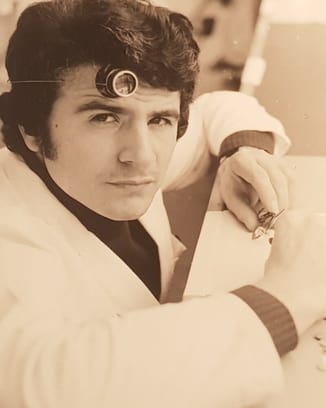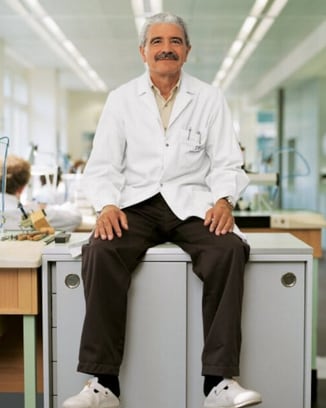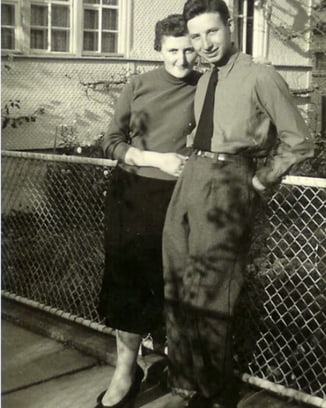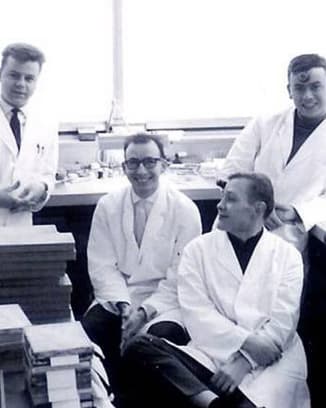World of watches
SUPERCENTENARIAN MARVEL - CHAT OF A CENTURY WITH KURT KLAUS
WATCHMAKERS KURT KLAUS AND AMARO ABAD REMINISCE ABOUT 115 YEARS WITH IWC SCHAFFHAUSEN
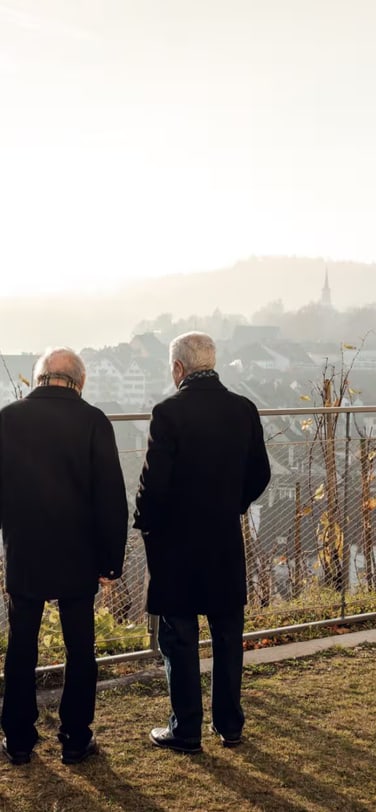
They still regularly meet in their “Wandergruppe” (hiking group) for retired IWC employees. Kurt Klaus and Amaro Abad, two institutions in the world of watchmaking, celebrate a total of 115 years with IWC Schaffhausen this year. During one of their latest private calls on Zoom, the two brilliant watchmakers reminisce about their time together, tell some inside stories and reveal a few secrets about IWC.
Read some excerpts below or listen to the full one-on-one conversation here.
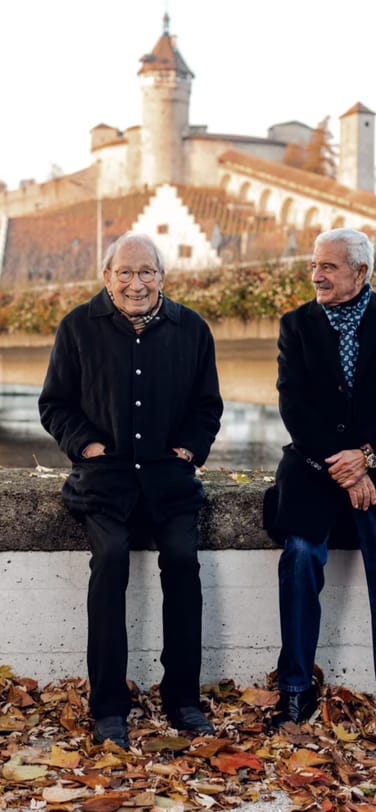
TWO WATCHMAKERS WITH ONE MISSION
Kurt Klaus, best known for “Operation Eternity” and inventing the genius crown-operated perpetual calendar, was born in 1934 in St. Gallen and started working with IWC when he was 23. When not standing in front of the camera for another episode of IWC’s A Smart Watch. And A Half, Mr. Klaus still jets around the globe, holding speeches and giving watchmaking classes all over Europe, the Americas and Asia.
Amaro’s story is quite different. Born in Spain as the son of a village watchmaker, he moved to Switzerland at the tender age of 17 and started working as an assistant in the watch assembly department in 1971. After completing his watchmaking apprenticeship, he started working in fine adjustment and eventually moved on to become the head of watch assembly. Amaro also briefly worked with Kurt Klaus, although not directly, in the development of the perpetual calendar. Today in his retirement, Amaro – who speaks fluent Spanish, German, French, Italian and Portuguese – leads guest groups and watch enthusiasts through the IWC manufacture, be it in form of a physical or a virtual tour.
ABOUT SCHAFFHAUSEN
Kurt Klaus: I keep telling people how great the quality of life is here in Schaffhausen. I never want to live anywhere else. I enjoy the beautiful scenery, I walk the dog over fields, through the forest and across meadows. And I always thoroughly enjoy it. Even when it rains, it’s still beautiful.
Amaro Abad: And you should not forget that because of our watches, Schaffhausen is known all over the world, because on our watch dials right below the logo of IWC it still says “Schaffhausen”. Which means that even in China or in North America people know that Schaffhausen is a city.
Kurt Klaus: Well, I can tell a little funny story about that. Years ago, I spoke with someone abroad and told him that I work for IWC. He asked “IWC? What is that?” “Well, IWC Schaffhausen.” [I said]. “Oh yes, that’s right!” [he said]. For a long time, the addition “Schaffhausen” was more important than “IWC” itself.
ABOUT THE FIRST DAYS AT IWC
Amaro Abad: I came to Switzerland as a young Spaniard at the age of 17 and when I heard that there was a watch manufacturer here in Schaffhausen my first thought was I have to try to find work at this manufacture. […] And so, I decided to become a watchmaker. And I have never regretted it, because I have been carrying watchmaking in my heart since I was a child. I often have watched my father repair watches and my heart has always beaten for watchmaking.
Kurt Klaus: As a boy, I didn’t know much about IWC either. I knew there was a watch factory in Schaffhausen. […] And so, I went there and asked: “Do you need a young watchmaker?” I was accepted and then had my first day at work. I still know exactly where that was, behind which window in the old building. I sat next to Erich Roost and started there and gradually got more and more into watchmaking.
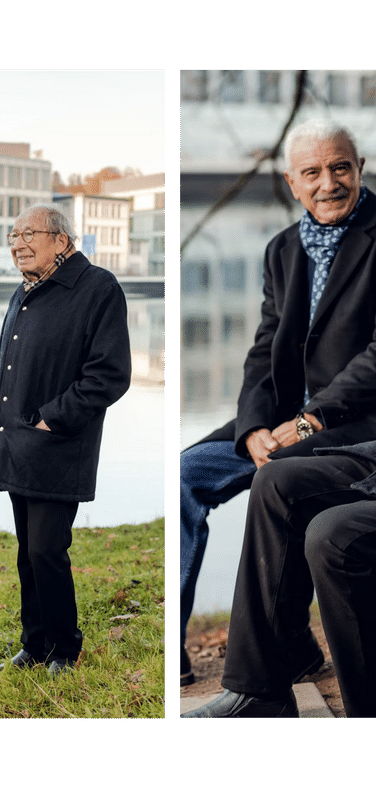
ABOUT THE FIRST TITANIUM WATCHES
Kurt Klaus: That was a big deal, a huge excitement!
Amaro Abad: The use of tools was another big challenge, because we were used to making cases out of silver, steel and gold. But for the machining of titanium we needed specialised drills or gravers, and it took years until we found the right material to use for the tools. Because if it was too hard, the tools would break, if it was too soft the tools would become blunt.
Kurt Klaus: That’s why it took so long to find the right tools that would allow us to properly process titanium. Yes, that was a steep learning curve for everybody who was involved. But over time we got the hang of it. That was the very first watch case made by IWC. The great Porsche Chronograph in titanium was then manufactured in series and only then, IWC started manufacturing watch cases from other materials, such as stainless steel and gold.
ABOUT THE PERPETUAL CALENDAR AFTER NEW YEAR’S EVE 2000
Amaro Abad: At the end of the year 1999 the big question was would our calendars correctly switch to the year 2000? Same with the computers. Nobody knew if it would work. Back in the days, I managed the department for movement assembly. On January 1, 2000, it was a Saturday, all department managers had to come to the office and double-check if all the watches and all computers had switched correctly from 99 to the year 2000. I remember that with a very few exceptions, everything had worked out perfectly.
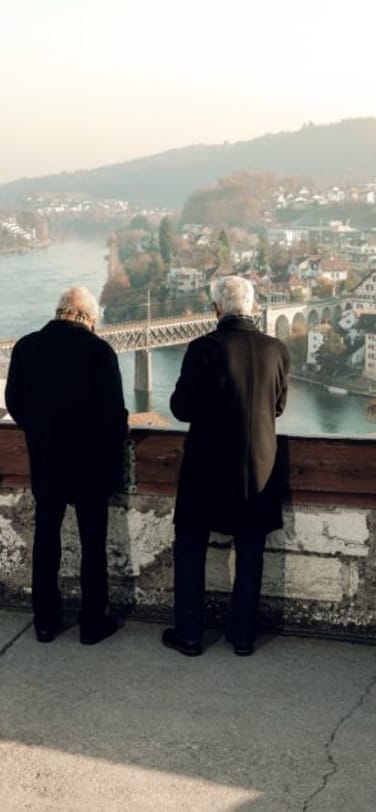
ABOUT DIGITALIZATION
Kurt Klaus: When I was working on the perpetual calendar of the Da Vinci in the early 1980s, I didn’t even know how to work with a computer. I had always calculated everything by hand. I made my drawings on the drawing board, and a calculation table had served as my computer because I was able to calculate precisely, either by hand or by mental maths. […]
Only later, in 1988 to be precise, I learned, oh, there’s something new. There’s a system called CAD, computer-aided design. Instead of using a drawing board you can design straight on a computer screen. I said, “Oh, I have got to have it.” Well, I did receive one and I took a course accordingly. And so, from one week to the next I switched from a drawing board to the computer screen. From that moment on I designed everything on screen. […] That was a big sensation!
All images by @remysteinerphotography
